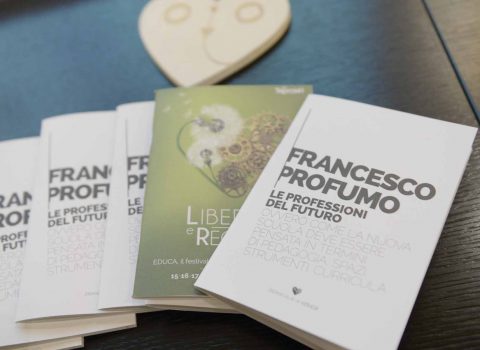
Writing history, writing stories
The "Aro" Forum dedicated to "Veronica and the Devil" is an opportunity to reflect on the writing of history
Annali. Recinsioni iOnline 2022/02 is out with an extensive review of the most recent historiography. The twenty-five reviews provide a varied sample of the scientific community’s interests and introduce us to the debate on some major issues of social, political and cultural history. Italian and foreign scholars from various research centers including Columbia University, the University of Alcalá, the University of Pavia, the German Historical Institute in London, just to name a few, have contributed to this issue in addition to the Italian-German Institute research group.
We open with the Forum dedicated to Fernanda Alfieri’s monograph “Veronica and the Devil“. Starting from the random discovery of a 19th century manuscript with multiple attempts at exorcism on the young Veronica Hamerani, the author takes us into an interesting writing experiment. The book is an opportunity to reflect on the writing of history with two reknown scholars that sign the Forum: Ottavia Niccoli and Michela Ponzani. Niccoli points out: “This is in fact first of all a very strong experiment in writing, both in historical writing and, perhaps even more, in literary writing (rightly the publishing house Einaudi has included the work in the “Frontiers” series). The standard historical narrative excludes the use of the first person, while here the author does not hide behind the usual anonymity of history scholars, but comes forward right from the first page, and even more so in the last page, and her “I” appears to us to be implied even when it does not explicitly emerge. This is also the story of her search, placed in space and time, up to the time when the tomb of the protagonist of the story cannot be found and a dream marks the conclusion of the investigation”.
Michela Ponzani draws attention to an essential element of historical research: “It is – and historians know this well – an enormous privilege to be able to tiptoe into the lives of women and men who lived centuries before us, even just to get a sense of what their worlds taste like, of what they dreamed, thought or hoped. And so, in an attempt to understand what happened to the young Veronica in the various phases of her “exorcism”, between those who undoubtedly considered her to be suffering from demonic possession and those who deemed her a victim of hysteria or even capable of faking attacks, to revolt against the authority of a father who humiliated and mortified her, the author recognizes the existence of insurmountable limits in the use of archival sources, which cannot tell us everything, as they can reconstruct only a small fragment of the past”.
And if this is true for the case of Veronica Hamerani, it is no less true for the other studies presented here, which touch on a wide variety of topics, including the history of the family and the transmission system of heritage, popular literature, the history of nutrition, and Italian-German cinema. The books proposed by “ARO” document an interdependence between historical research and public debate: environmental issues are investigated through the prism of the history of water resources, while the issue of welfare is retraced with a careful reconstruction of the critical nodes of social security and health system in Italy in the twentieth century. Also, the volume dedicated to the management systems of foreigners and the organization of accomodation solutions in the modern age offers an opportunity to reflect on migratory movements.
The research topics and approaches are manifold and propose an preview of the most recent studies on humanism, German resistance to National Socialism and much more. The new frontiers of research also show us how the concept of “trauma”, borrowed from psychology and psychoanalysis, allows us to learn more in depth about the consequences of the war not only from the perspective of the fighters, but from the point of view of the civilians who suffer the actions (from bombings, violence and rape, to the violent death spectacularized by the showing of the “body of the killed enemy”), that are unavoidable methodological issues made extremely relevant by the current terrible events.
What else can we add? The suggestions that emerge from this issue are really many and we just have to have you go to the “Aro” platform and choose the ones closest to your interests
Katia Occhi
‘Aro’ Director


